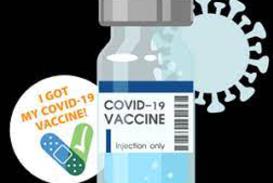HOW TO AVOID CONTRIBUTING TO COVID-19 MISINFORMATION
by John G. Baresky on 10/01/20
The quantity of information shared by broadcast, digital and print media about COVID-19 is overwhelming but not always accurate
The COVID-19 pandemic is a global healthcare challenge for consumers, patients, medical professionals, payers/managed care organizations, employers and governments. It's a scramble to stay updated as new details and data become available about SARS-CoV-2 on a constant basis.
There is an abundance of accurate information from established, authoritative sources. Unfortunately, there is also ample information shared through media that is actually misinformation and this has a negative and dangerous ripple effect. As it travels through broadcast television and radio, digital & social media, print and other channels it can trigger decision-making mistakes, incorrect assumptions and other issues.
While media broadcasters, writers, journalists, bloggers and other information sharers mean well with staying on top of new developments, they can misinterpret communications from government agencies, medical professionals and other qualified sources of information. Healthcare marketing professionals that duplicate these stumbles can erode customer confidence, detract from their professional reputation and negatively impact revenue.
How can healthcare marketers avoid disseminating misinformation regarding COVID-19?
Healthcare marketers and healthcare content writers can help counteract the harmful impact of misinformation about COVID-19. First of all, it is important to be extraordinarily selective of where information is being sourced from. These are some examples to consider...
Government healthcare agencies are a solid start:
Recognized global healthcare organizations can be viable references:
Leading academic healthcare institutions are good sources of data and opinion:
Professional medical associations can be consulted:
Accrediting agencies:
Bonafide, credentialled healthcare professionals
- Licensed medical doctors, nurses, pharmacists, etc.
It is important to remember that not all of these examples or sources plus others will have concurrent, mirroring views about COVID-19. It is crucial to weigh the similarities and differences between them and strike the balance to assure accuracy and correct context in the content being developed.
Qualify commercial and clinical published information
When working with published healthcare information, it is important to evaluate its authenticity and level of quality. A good foundation for this is if the information is clinical in nature, the content should be from a peer-reviewed publication.
For other sources, evaluate the credentials and experience of authors, journalists, writers and other content producers plus the publications they are featured in. It is important to get a sense of their level of knowledge, attention to detail and professional reputation.
Fact-checking and validating details, data and commentary must be thorough
Even when using reputable sources of information, it is still important to take additional steps to reinforce accuracy. Make sure the information being accessed is as current as possible.
This is a major task as COVID-19 developments and data change frequently.
In the case of government or global health agencies, academic health centers or accredited medical societies, be certain the information is endorsed as official communication, direction, policy, standard or regulation. If clarification is needed, contact the reference source directly and request it.
Editing, paraphrasing and repurposing of information has to be done with precision accuracy
When compiling information from various sources with the intention of writing an article, developing marketing and sales messaging or developing other communications, be certain to clearly convey it in the context of which it is was intended when it was issued. Re-wording content should be done carefully to be certain it does not result in misstatement of fact or lead to misinterpretation by the audience reading it. A substitute word from a thesaurus is not necessarily a mirrored version of the original.
Obtain a second and even a third opinion before something is published
Self-editing is difficult especially if the content is clinically complex and/or lengthy. Request a peer or other knowledgeable individual to review the content. Make the best possible use of those associates with established, objective editing experience plus the guidance of medical and regulatory review professionals if they are available.
Align content with the audience's level of healthcare literacy and follow best practices
Stay in close alignment to the main facts while developing content that accurately and clearly resonates with the intended audience. To help clarify details further, utilize footnotes and links that provide definitions and explanative dialogue that can augment core content while avoiding adding too much length to it.
If there is doubt to any opinion, data or other details, revisit them with the help of others and get their input. If a consensus can't be reached on its accuracy or how it can be effectively shared, delete it.
Comments (0)

